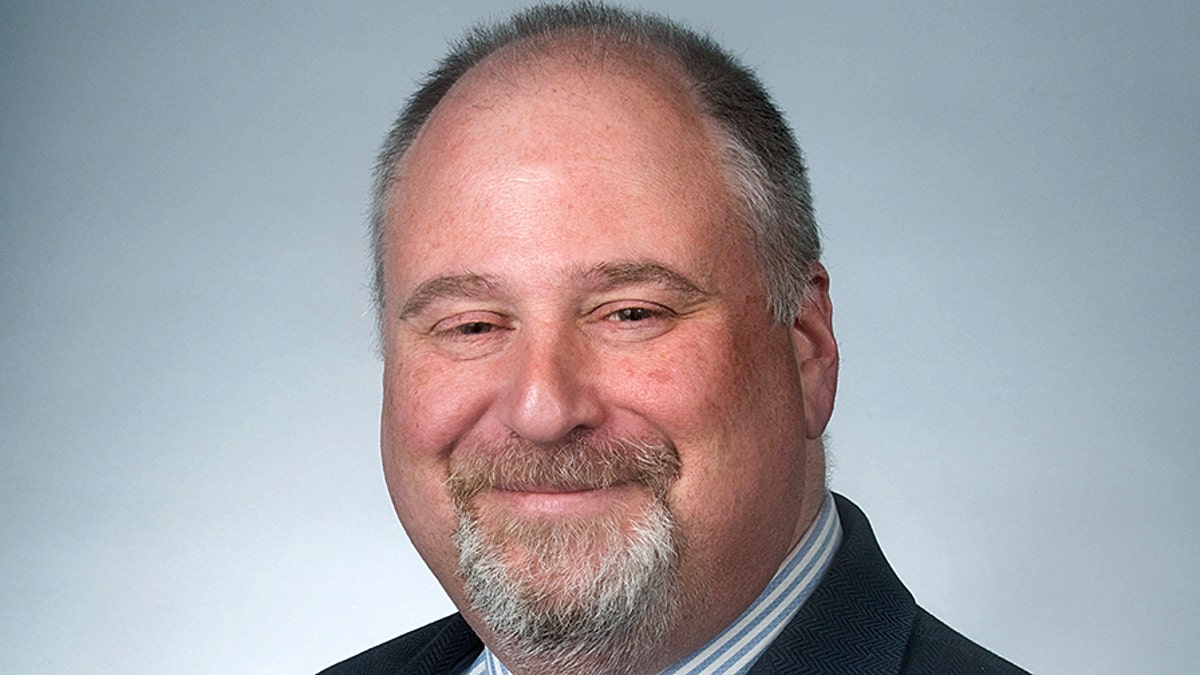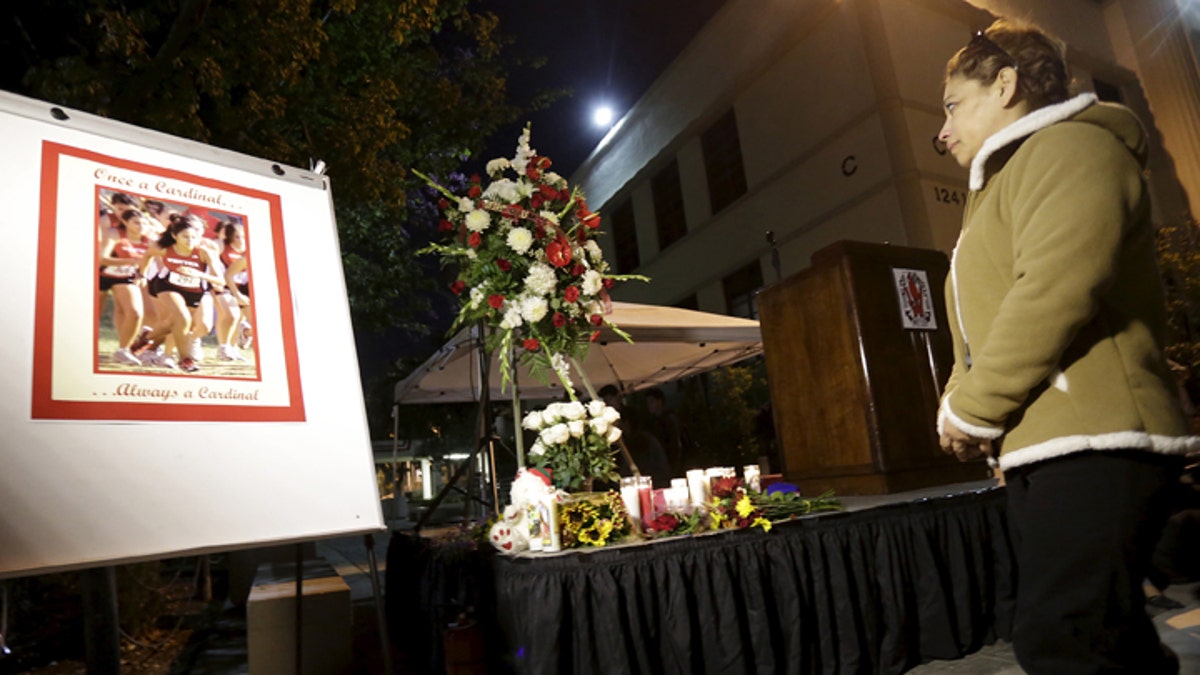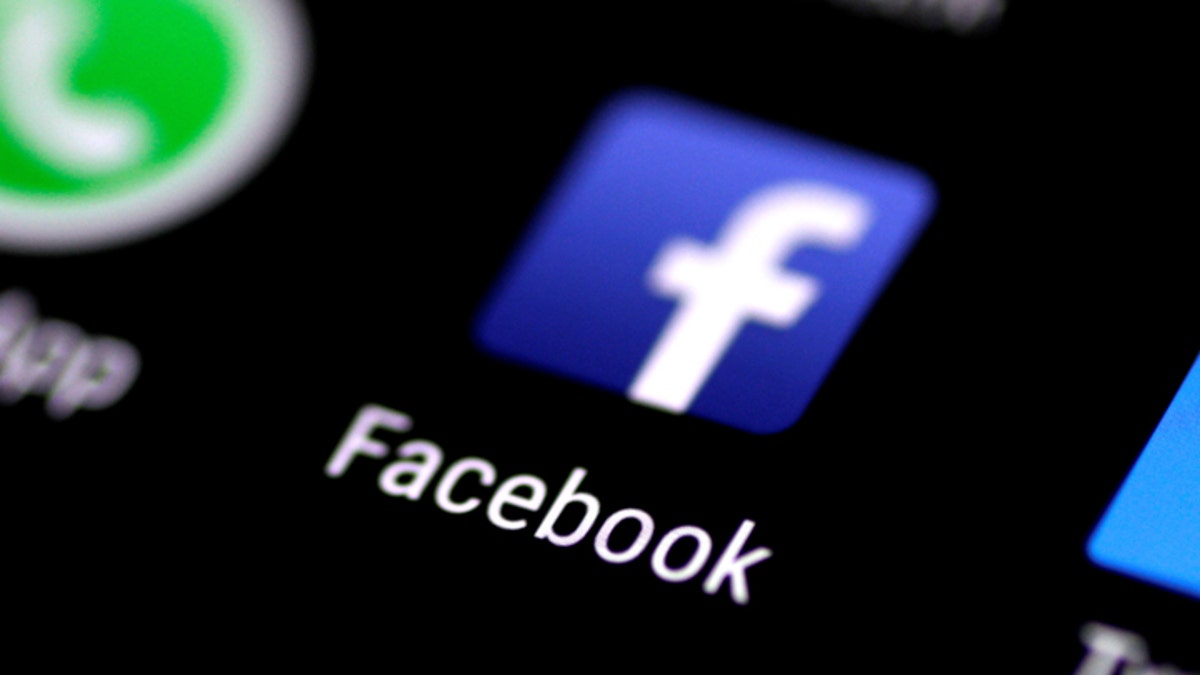
(Courtesy of Keith Altman)
A lawyer who earned his degree through a correspondence course and works for a company called 1-800-LAW-FIRM may seem like an odd choice to lead a series of potentially precedent-setting lawsuits against some of the world’s most powerful social media companies.
But judging Keith Altman by his resume would be underestimating the 49-year-old lawyer and his quest to make tech giants like Facebook, Twitter and Google liable for allegedly providing “material support” to followers of terror groups who commit mass murder.
“These cases seem impossible but they can have a real impact,” Altman told Fox News. “This is about holding these companies accountable for allowing terrorists to radicalize people through social media channels.”
Altman’s ambitious effort to take on the social media giants has been dismissed by some legal experts but others say the lawsuits have potential to shake up the industry and force major changes.

A woman stands at a makeshift shrine to honor Whittier High School alumna Nohemi Gonzalez, who was killed in the Paris terror attack last week, during a candlelight vigil in Whittier, California November 17, 2015. REUTERS/Jonathan Alcorn - GF20000064180
Starting in June 2016 while representing the family of Nohemi Gonzalez – the only American killed during the 2015 Paris terror attacks – and drawing on his previous experience taking on pharmaceutical giants, Altman has filed six lawsuits to date. In the suits, Altman claims that Google, Facebook and Twitter have allowed their social media platforms to be used as a tool to recruit jihadists and that these companies have even profited from advertisements on terrorist propaganda.
Besides the Gonzalez family, Altman represents families of victims from terror attacks in Dallas, San Bernardino, Istanbul, Barcelona and those killed at during the shooting at the Orlando nightclub last June.
“I filed that suit at 5 p.m. and had my first date with my now fiancee an hour later,” Altman said. “For the first half of the date, I was being bombarded with calls from every news organization you can think of to make a comment.”
At the heart of all these lawsuits is the interpretation of a provision tucked deep inside the Communications Decency Act (CDA) of 1996 called Section 230.
The language of Section 230 states that “No provider or user of an interactive computer service shall be treated as the publisher or speaker of any information provided by another information content provider." Companies like Facebook and YouTube have interpreted that to mean they are not liable for what their users post on their sites.
“Section 230 is a free pass to online service providers as long as they act only as a pass-through,” Mark Bartholomew, a professor at the University Of Buffalo School Of Law, told Fox News. “If you set up a place for people to talk, but don't communicate on it yourself, then you are basically immune from prosecution.”
Section 230 of the CDA was implemented to help protect social media sites in their nascent years. But Altman and others have begun to argue that social media sites may be violating the provision with their heavily guarded algorithms and that these companies have the resources to monitor any terror activity on their platforms.
Altman – who before going into law developed litigation support tools and trial presentation software – said that computer programs can be developed that can filter certain key words like jihad and ISIS, shut down suspicious accounts and look out for accounts that send out mass follow and friend requests – all telltale signs of terror propaganda.
“Give me a weekend and I could write programs that do all of these things and more,” he said. “So how can these guys say with a straight face that they can’t do it?”
A spokesperson for Facebook told Fox News that the social media site does not allow any terrorist activity on its website.
“We are committed to providing a service where people feel safe when using Facebook,” the spokesperson said in an email. “Our Community Standards make clear that there is no place on Facebook for groups that engage in terrorist activity or for content that expresses support for such activity, and we take swift action to remove this content when it’s reported to us.”
A representatives from Twitter told Fox News the company does not comment on pending legislation. Google did not immediately reply to Fox News’ request for comment.
Altman is realistic about his and his client’s chances of succeeding in court, but says the real battle is going to take place in appellate courts and possibly even the Supreme Court.

The Facebook application is seen on a phone screen August 3, 2017. REUTERS/Thomas White - RC13B0FC4740
“If we win just one of these cases it is going to be like an atomic bomb went off at these social media companies,” he said.
Experts in social media law don’t disagree with Altman that a victory for any his clients would create a massive sea change in the tech world, but note that it will be a tough fight to get courts to rule against Section 230.
“It sounds like a good idea, but when you get down into the weeds it gets complicated,” Thaddeus Hoffmeister, a law professor at the University of Dayton and author of “Social Media in the Courtroom: A New Era for Criminal Justice?” told Fox News.
Hoffmeister says questions like how to define terrorist activity, how far does the censorship go and how do you differentiate between domestic and international terrorism are just a few of the roadblocks that Altman’s lawsuits could run into.
Whether or not any of Altman’s lawsuits are successful, experts contend that, at the very least, they are bringing light to the issue and creating a conversation that might force companies to be held more accountable.
“When he starts rattling the saber, it makes companies take action and do something about it,” Hoffmeister said. “These lawsuits add fuel to the fire.”
